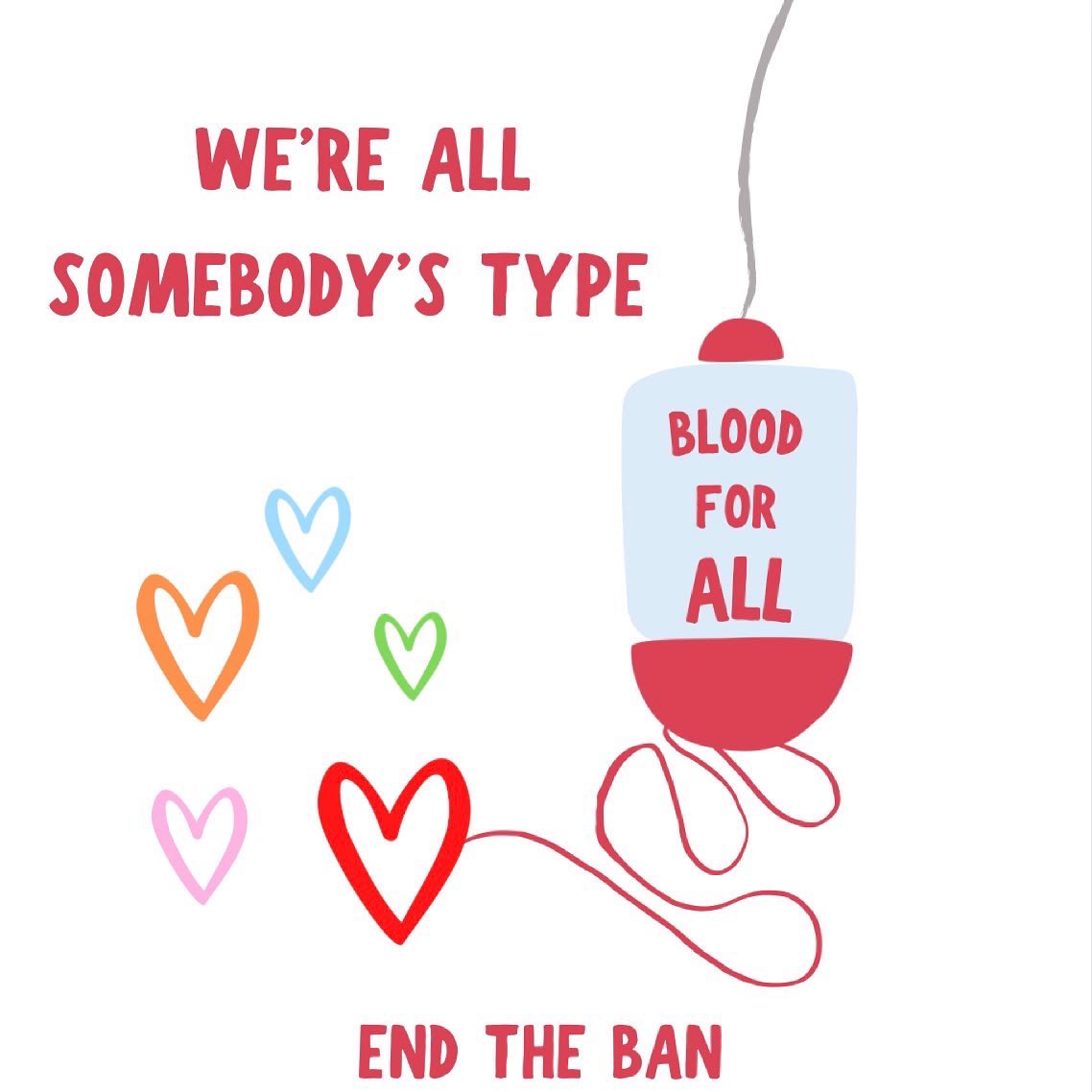A group of Irish students from Trinity and University College Dublin (UCD) have launched a “Blood For All Ireland” campaign, including apetition calling for the end of the 12 month blood donor ban for men who have sex with men (MSM).
Specifically they want to see an end to the ban for MSM Blood donors who “use PrEP, are fully vaccinated against Hep B and/or practice safe sex”.
The group are also calling for the enforcement of “equal restrictions (should they continue to exist) on all potential donors such as regular STI screening”.
Under the current law, any man that who has had oral or anal sex with another man in the past 12 months is ineligible to donate blood, even if he used a condom or pre or post exposure prophylaxis (PrEP/PEP).
These restrictions can be traced back to the emergence of HIV in the 1980s. In 2017, the lifelong ban for MSM was changed to a 12 month ban.
The Blood For All Ireland petition was published after the Irish Blood Transfusion Service (IBTS) announced on Wednesday that the country is currently facing a blood supply shortage. The IBTS also said that a consignment of blood is to be imported from England to combat this shortage.
In the petition description, the Blood For All Ireland campaign says that “the bans enforced by blood transfusion services all around the world against MSM are rooted in discriminatory healthcare policies following a rise in HIV and hepatitis B cases in the 1970s and 1980s in MSM patients.”
“Once it was realised that these conditions could be passed on through blood, it was crucial that those who were most at risk of contracting the viruses, including gay and bisexual men, were not able to pass them on through blood donation since effective screening was not yet available” the description continues.
“Our medical technology has advanced since the 80s and the 90s, in a way where we can accurately detect HIV and Hep B in the blood-systems of those who intend to donate blood.”
“We understand now in the 21st century that these two diseases don’t just affect men who have sex with men and can affect anyone at any time” and “this archaic ban is still enforced”.
Speaking to Trinity News, Trinity student and campaigner Oscar says that “donating blood is such a beautiful and important thing to do”.
“With 1 in 4 people needing a blood donation within their life and the complete shortage of blood, donors in our country should be reassessed.” and “there are far too many restrictions which limit those who wish to donate blood”.
He also believes that the current restrictions on MSM blood donors are “unfair” and said that he has “a massive desire to donate blood”.
“Due to the archaic nature of the current regulations I will not be able to ever give blood, neither will a large majority of the LGBTQ community and this needs to change now” he concluded.
KCL student and campaign member Dan told Trinity News that they have “been inspired by the incredible work by so many Irish activists to help reform the blood donation system as it exists in Ireland”.
“In the face of this new blood shortage, we hope to apply pressure on the service to accept that their current discriminations against MSM and sex workers is unacceptable if they have been screened and tested properly” they continued.
They believe “everyone’s blood should be treated equally, and everyone should be scrutinised and screened in the same way”.
Currently, the IBTS does not accept blood from anyone who has “ever been given money or drugs for sex” or who has, in the last 12 months, had “sex with anyone who had ever been given money or drugs for sex.”
Campaigner and Trinity student Eva O’Beirne also spoke to Trinity News, saying “we’ve always been aware of this injustice” and “despite numerous victories, a 12-month long ban isn’t acceptable”.
“We’ve started this campaign to ensure fair and equal blood donation procedures in Ireland” she continued.
“Every drop counts,” she concluded.






